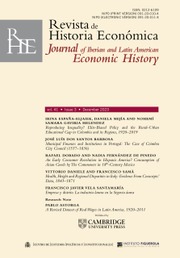Article contents
Empire and Economic Growth: the Case of 18th Century France
Published online by Cambridge University Press: 28 April 2010
Extract
Among the colonial powers of the early modern period, France was the last to emerge. Although, the French had not abstained from the exploration of fhe New World in the 16th century: G. de Verrazano discovered the site of New York (1524), during a voyage sponsored by King Francis I; Jacques Cartier sailed up the St. Lawrence to Quebec and Montreal (1535). From the early 16th century, many ships from ports such as Dieppe, St. Malo, La Rochelle, went on privateering and or trading expeditions to the Guinea coast, to Brazil, to the Caribbean, to the Spanish Main. Many French boats did fish off Newfoundland. Some traded in furs on the near-by Continent. Moreover, during the 16th century, sporadic attempts were made to establish French settlements in «Equinoctial France» (Brazil), in Florida, in modern Canada, but they failed utterly. Undoubtedly, foreign wars against the Habsburgs, during the first half of the 16th and of the 17th centuries, civil «wars of religion» during the second half of the 16th century, political disorders like the blockade of La Rochelle or the Fronde during the first part of the 17th century, absorbed the attention and resources of French rulers, despite some ambitious projects, like those of Richelieu, for overseas trade. As for the port cities they tried to trade overseas but they were isolated and not strong enough (specially during die wars of religion) to create «colonies». Some small companies, which had been started in 1601 and 1604, to trade with the East Indies, were very short-lived, and the French did not engage seriously in Asian trade before 1664.
- Type
- Articles-Artículos: Part 2. European Economics in the First Epoch of Imperialism and Mercantilism, 1415–1846
- Information
- Revista de Historia Economica - Journal of Iberian and Latin American Economic History , Volume 16 , Issue 1: The costs and benefits of european imperialism from the conquest of Ceuta, 1415, to the treaty of Lusaka, 1974. Twelfth International Economic History Congress. Madrid 1998 , March 1998 , pp. 177 - 193
- Copyright
- Copyright © Instituto Figuerola de Historia y Ciencias Sociales, Universidad Carlos III de Madrid 1998
- 1
- Cited by




